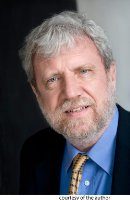 Much has been said and written about the so-called “10,000 Hours” concept and why, with rare exception, no one can achieve performance without practicing for at least 10,000 hours. Malcolm Gladwell discusses this in Outliers and shares some of the blame for confusion about the concept.
Much has been said and written about the so-called “10,000 Hours” concept and why, with rare exception, no one can achieve performance without practicing for at least 10,000 hours. Malcolm Gladwell discusses this in Outliers and shares some of the blame for confusion about the concept.
Thanks to research conducted by Anders Ericsson and his associates at Florida State University, we know that achieving peak performance depends on a combination of factors:
o Luck
o Natural Ability
o Temperament
o Commitment
o Expert Supervision
and most important of all, deliberate practice.
Here is a brief excerpt from an article, “The Making of an Expert,” written by Ericsson, Michael J. Prietula, and Edward T. Cokely in the July–August 2007 issue of Harvard Business Review. To read the complete article, check out the wealth of free resources, obtain subscription information, and receive HBR email alerts, please click here.
“To people who have never reached a national or international level of competition, it may appear that excellence is simply the result of practicing daily for years or even decades. However, living in a cave does not make you a geologist. Not all practice makes perfect. You need a particular kind of practice—deliberate practice—to develop expertise. When most people practice, they focus on the things they already know how to do. Deliberate practice is different. It entails considerable, specific, and sustained efforts to do something you can’t do well—or even at all. Research across domains shows that it is only by working at what you can’t do that you turn into the expert you want to become.”
* * *
“Moving outside your traditional comfort zone of achievement requires substantial motivation and sacrifice, but it’s a necessary discipline. As the golf champion Sam Snead once put it, ‘It is only human nature to want to practice what you can already do well, since it’s a hell of a lot less work and a hell of a lot more fun.’ Only when you can see that deliberate practice is the most effective means to the desired end—becoming the best in your field—will you commit to excellence. Snead, who died in 2002, held the record for winning the most PGA Tour events and was famous for having one of the most beautiful swings in the sport. Deliberate practice was a key to his success. ‘Practice puts brains in your muscles,’ he said.”
* * *
You can check out the complete article by clicking here.
K. Anders Ericsson is a Swedish psychologist and Conradi Eminent Scholar and Professor of Psychology at Florida State University who is widely recognized as one of the world’s leading theoretical and experimental researchers on expertise. To learn more about Ericsson and his work, please click here.
I highly recommend Peak: Secrets from the New Science of Expertise, co-authored by Ericsson and Robert Pool and published by Eamon Dolan/Houghton Mifflin Harcourt (April 2016).
Here is a direct link to my review of it.